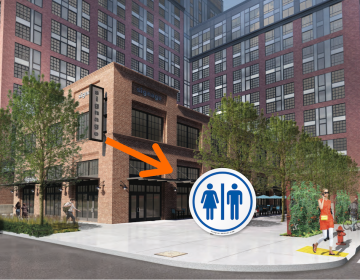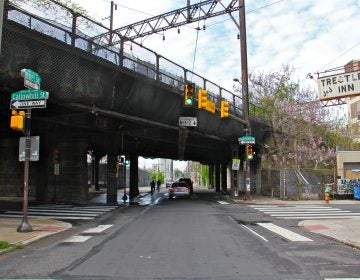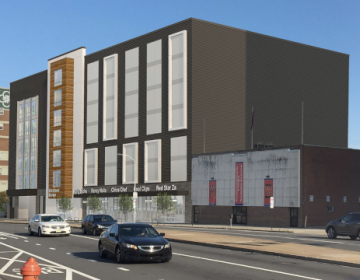Praxis Dialogues: Collaborative works by Asian Arts Initiative and Sunday Breakfast Rescue Mission
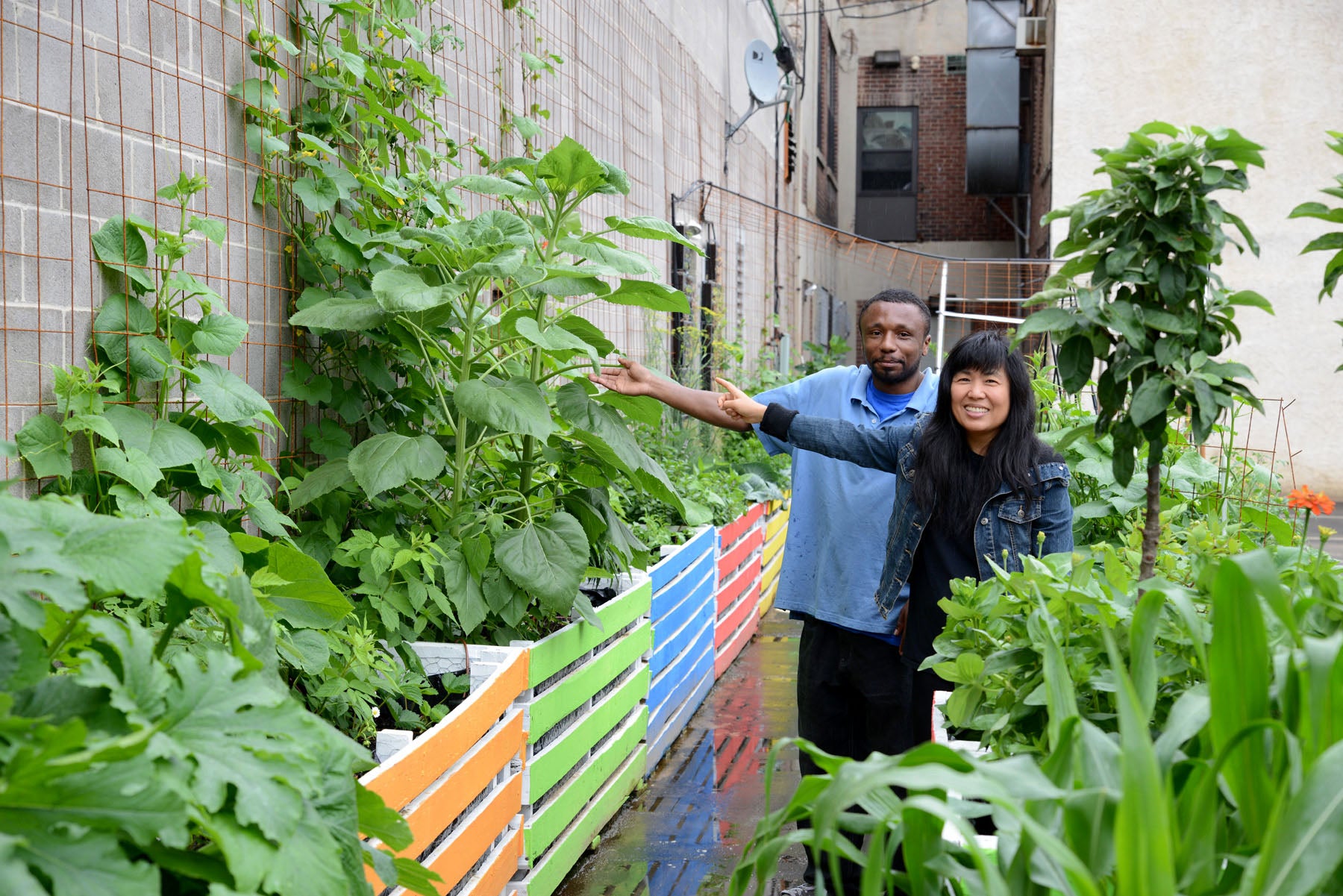
On April 11, PennPraxis and PlanPhilly will present Praxis Dialogues, a conversation about what the notion of “public good” means in terms of public arts and culture. We’re sharing commentaries from the panelists in advance. So far we’ve heard from Ken Lum on public art’s health, and Paul Farber on the obligations and opportunities of public art in Philadelphia. This week Nancy Chen takes us to Asian Arts Initiative’s social practice art rooted in their Chinatown North / Callowhill neighborhood.
Asian Arts Initiative, a community based arts center founded in 1993, has used art as a vehicle to explore the experiences of Asian Americans and the diverse communities of which we are a part. The organization moved to its current location at 1219 Vine Street in Chinatown North/Callowhill neighborhood in 2008, wanting to ensure a permanent home in the changing neighborhood.
Chinatown North’s recent history includes a quickened pace of commercial development and development of high-end residential properties, ambivalence and hostility towards the presence of homeless individuals leading to tensions between neighbors, and competing visions from different community-based organizations for the present priorities and future trajectory of the neighborhood. Asian Arts Initiative has sought to use its strengths as an arts organization to serve as a bridge between the socio-economically and racial/ethnically diverse constituents in this contested terrain.
Asian Arts Initiative has been working at the intersection of art and public interest through the Social Practice Lab, a community-engaged artist residency focused on our neighborhood of Chinatown North/Callowhill.
I managed public programming at Asian Arts Initiative from March 2011 through March 2016, including the Social Practice Lab artist residency and its related but distinctive cousin, the Pearl Street Project. Through these multi-year neighborhood initiatives, we support artists working with community members in creative actions that address issues of equity and access to power within Chinatown North and the need to foster opportunities for equitable development.
Asian Arts Initiative has structured neighborhood-engaged residencies to begin with an initial period (between one to three months) that is dedicated to community observation. The artists spend many hours attending meetings hosted within the neighborhood, speaking with community members that work or live nearby, and often volunteering or leading workshops. Following this period, artists conceptualize and propose projects or interventions based on the dynamics they have observed within the neighborhood.
Since launching our Social Practice Lab in 2012, one of the constituencies Asian Arts Initiative has dedicated the most time and resources focusing on is the homeless. The Sunday Breakfast Rescue Mission, a private men’s shelter that is one of our nearest neighbors, emerged as one of our key collaborators. A combination of factors have repeatedly attracted artists to partnering with Sunday Breakfast, including the staff and constituents’ flexibility, capacity and enthusiasm for artistic collaboration, and a larger desire to shift the negative perception and antagonistic attitude toward the homeless.
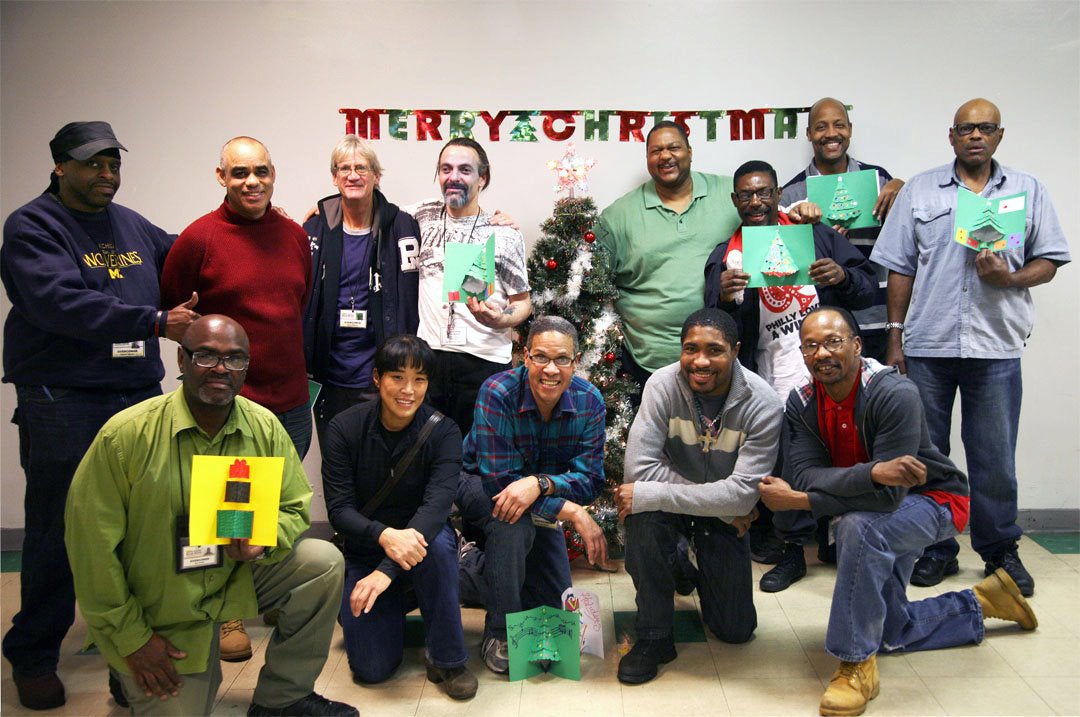
In the inaugural year of Social Practice Lab (2012-2013), artists in residence Colette Fu, Anula Shetty and Mike Kuetemeyer worked with the Sunday Breakfast “Overcomers” (a group of men committed to a year long recovery program) to create visual and digital artworks that shared the men’s personal stories and photographs they had taken of the neighborhood. These earlier projects and their artistic products introduced two threads that recurred throughout future collaborations with Sunday Breakfast’s guests: (1) The members of the homeless community come from all walks of life and have personal experiences of family, relationships, love, and loss that are frequently relatable; and (2) While frequently regarded as individuals who are on the receiving end of services and goods—always taking rather than giving—when given an opportunity, the members of the homeless community have a great deal of skills and knowledge to offer.
The organizational and individual relationships that started to be built in those inaugural year’s residencies paved the way for two more intensively-engaged residencies in our second Social Practice Lab cycle (2014-2015): the launch of Sunday Breakfast Farm by Meei Ling Ng and the “Consumption” project by Rick Lowe, as well as a collaboratively-organized exhibition that took the form of a makeover of the shelter’s dining hall.
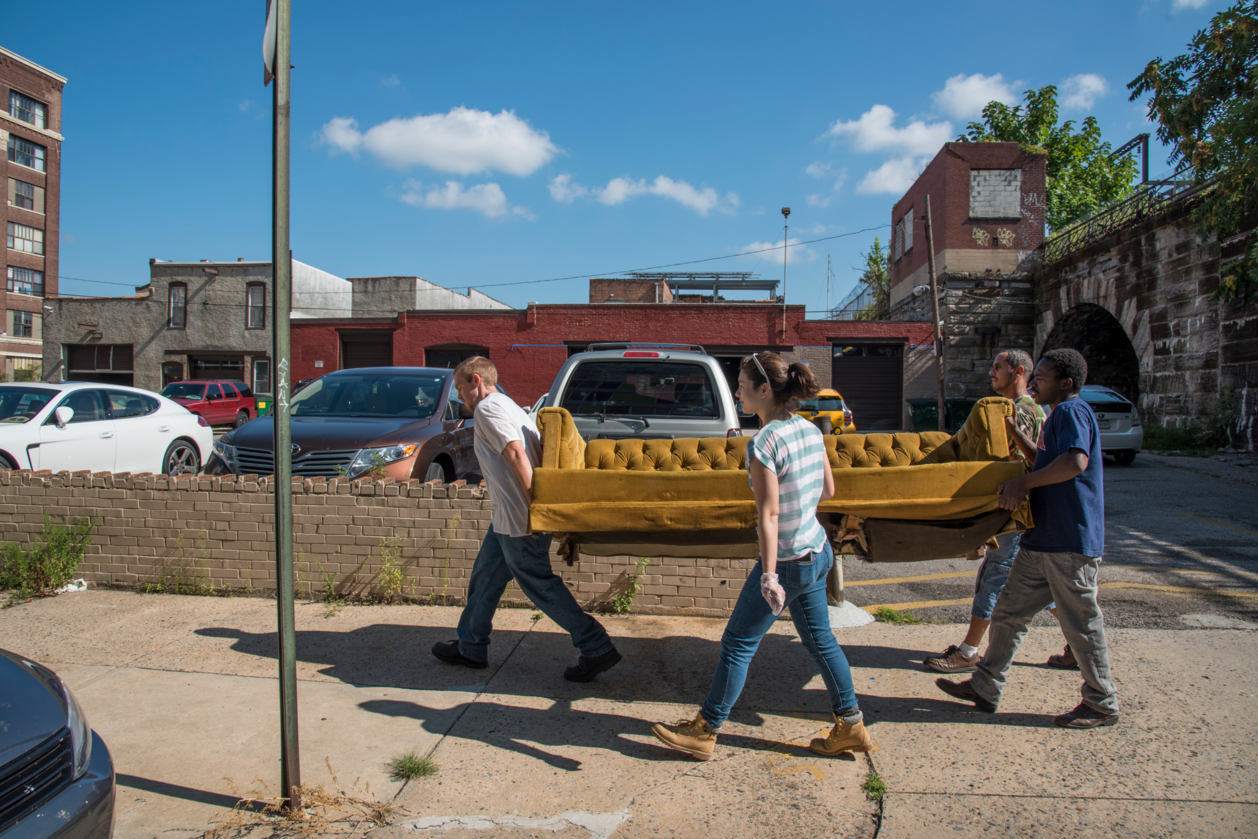
Since launching in February 2015, the Sunday Breakfast Farm has continually engaged a combination of Overcomers and volunteer apprentices in the day-to-day operations. In its first year in 2015, the farm (which is located in a previously unutilized swath of the parking lot on the south side of the shelter) yielded over 1,000 pounds of fresh produce that was donated directly to the kitchen of the shelter to use to make the meals it served every day to guests. The shelter’s kitchen is reliant on donations to stock its pantry and to create its daily menu, fresh produce is rare while packaged and canned foods are more common among the donated items.
“Consumption,” a project conceived by Rick Lowe, co-led by Emily Chow Bluck, Aletheia Hyun-Jin Shin and Jeffrey Harley, responded to the physical and social dynamics of Pearl Street. Artists and Overcomers worked together on a daily basis in a series of street clean-ups, educational workshops, and co-creation of artistic installations and performances including Finding Comfort and the Kitchen of Corrections at the 2015 Pearl Street Block Party.
The recent dining hall makeover exhibition was the result of almost a year of conversations and planning with Nick Lordi, Sunday Breakfast’s Director of Men’s Ministry. When we initially met to discuss possibilities for an exhibition, it was Nick who clearly saw an “exhibition” as an opportunity to improve quality of life at the shelter, especially within the public space of the dining hall (also known as the day room), which serves up to 800 men a day on the busiest days during the year. For the remainder of the year, Asian Arts Initiative staff worked with Nick Lordi and the Overcomers group to gather input on how to improve the dining hall physically and socially. Architect Nancy Bastian of Cecil Baker + Partners generously offered her professional design services pro bono.
All of these projects have created frameworks for sustained engagement and dialogue between Sunday Breakfast’s clients who are experiencing homelessness and economic instability and a broad range of community members from Chinatown North and beyond. These projects provide examples of how Asian Arts Initiative has commissioned artists and also positioned its own organizational practice to achieve the goals of facilitating dialogue and effecting positive change within Chinatown North. Having a partner like Sunday Breakfast, combined with the time and span of opportunities for trial and error has allowed us to experiment and to learn from varied approaches, from small interventions to multi-year residencies. With awareness of how concepts like public good and positive social change are often hazily defined, looking back on this portfolio of projects helps Asian Arts Initiative to reflect on the specific successes and challenges of previous approaches and to reshape and refine our Social Practice Lab structure in the next cycle.
The public conversation Praxis Dialogues: Arts and Culture will take place on April 11, from 6:30-8pm at Fringe Arts, 140 N Christopher Columbus Blvd. The event is free and open to the public. Advance registration is requested as space is limited.
WHYY is your source for fact-based, in-depth journalism and information. As a nonprofit organization, we rely on financial support from readers like you. Please give today.





